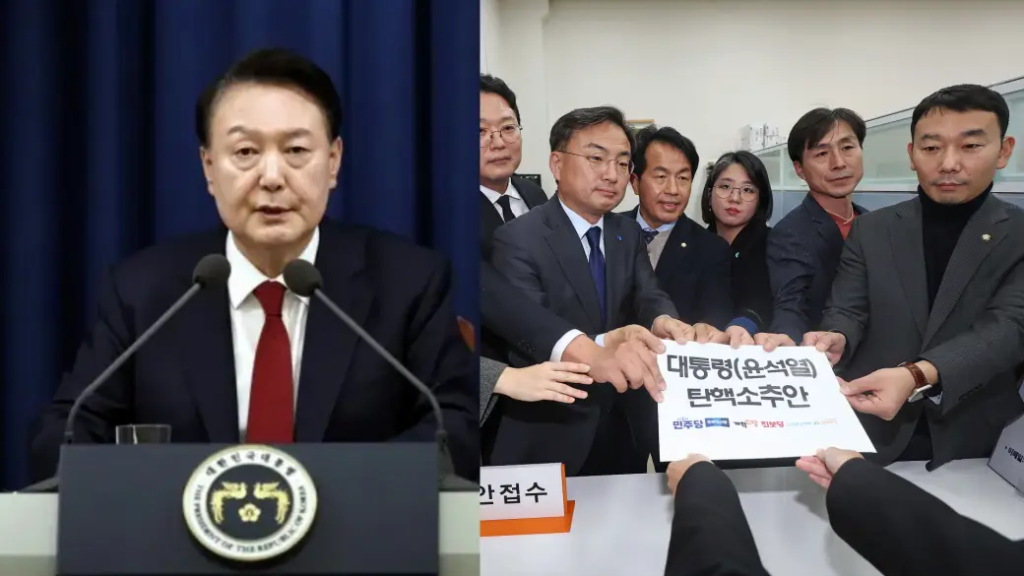On Saturday, December 14, 2024, South Korean President Yoon Suk Yeol was impeached by the National Assembly following his controversial attempt to declare martial law, which lasted only six hours. The vote concluded with 204 lawmakers in favor of impeachment, 85 against, and three abstentions, while eight votes were nullified. This marks a significant political upheaval as Yoon is now suspended from office pending a ruling from South Korea’s Constitutional Court, which has 180 days to decide on his fate.

If Yoon Suk Yeol is thrown out of office, a national election to choose his successor must be held within 60 days.
In principle, an impeachment case requires at least seven judges to convene, with a minimum of six needed for approval. However, the Constitutional Court currently has only six judges, as three positions are vacant. A court official indicated that the review could still proceed, but it remains uncertain whether a final decision can be reached under these conditions.

The impeachment motion accused Yoon Suk Yeol of insurrection, claiming that his actions undermined the constitutional order. His declaration of martial law on December 3 was met with immediate backlash, leading to widespread protests and demands for his resignation.
Yoon Suk Yeol rescinded the martial law order shortly after it was imposed in South Korea, but the damage had been done, plunging the nation into a constitutional crisis.

Prime Minister Han Duck-soo will serve as the interim president during this period.
Should the Constitutional Court uphold the impeachment, Yoon would become only the second South Korean president to be successfully impeached in history.

There were indications that some members of Yoon’s ruling People Power Party (PPP) would support the impeachment vote against Yoon Suk Yeol, which ultimately contributed to its success.
In his defense, Yoon Suk Yeol characterized his martial law decision as necessary for governance and accused opposition members of attempting to destabilize his administration.

However, many South Korean lawmakers and citizens viewed Yoon Suk Yeol’s actions as unconstitutional and a direct threat to democratic processes. The political situation remains tense as investigations into potential insurrection-related charges against Yoon and other officials continue.

